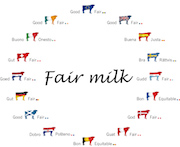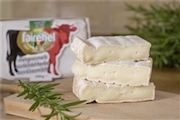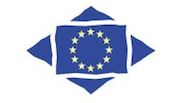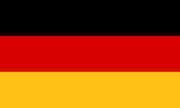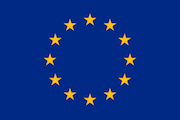EMB Newsletter June 2015
Newsletter as PDF
Contact
EMB - European Milk Board asbl
Rue de la Loi 155
B-1040 Bruxelles
Phone: +32 - 2808 - 1935
Fax: +32 - 2808 - 8265
Dear dairy farmers and interested parties,
The Milk Market Observatory (MMO) celebrated its one-year anniversary last month. We still welcome the increased amount of material information that is published and made available Europe-wide each day. Publishing information and acting on that information are two quite distinct things. As we feared and stated in the wake of the establishment of the MMO, the Commission seems to mistake collating data for meaningful intervention and we are no closer to policy of practical and effective intervention in times of market upheaval.
Given that our fears have been realised and that the Nicholson Report says that "a sustainable and competitive dairy sector with responsive tools is the goal of the Milk Package" it seems obvious that there must be changes made to the role of the MMO. The report highlights the reality that volatility will be a continuing challenge facing the dairy sector and urges the Commission to consider measures to mitigate the risks arising from hugely increased exposure to the world market. This must be the central plank of dairy policy going forward within DG Agri. The prospect of family farms going out of business due to largely avoidable volatility - where the remedy could be legislated for - is very hard to take. Especially where these family farms are, in the main, basically profitable businesses simply unable to deal with see-saw price volatility and abrupt market movements.
So while the Nicholson report says that the "medium and long-term prospects for the dairy sector in both domestic and global markets remain favourable" that will be of little comfort to those dairy farmers exiting the industry each year due to extreme price volatility. What we need are programmes with legislative power to deal with potential crisis before they arise. Prevention is better than the cure and therefore an MMO with 'teeth' would go a long way towards preventing crisis such as the current one where milk prices are falling to levels not seen since 2009.
The MMO also presents the EU with an opportunity to - finally - address the issue of the overwhelming power of the retailer in the supply-chain. The current system where some parties (retailers) in a transaction have more information than others (farmers) is putting completely unfair pressure on the primary producer. This system of so-called 'Asymmetric Information' is leading to all the decisive power being concentrated in the hands of the retailer, with the margins in the food-supply chain remaining stable for the retailer but constantly 'squeezed' for the primary producer. We demand the Commission to pursue vigorously the possibility of getting 'Real Time' data from all sides in a way that, coupled with legislative backing, would allow the Commission to intervene in a proactive, meaningful and fair-handed manner.
The MEPs also call for an enhanced Milk Market Observatory in their amendments to the Nicholson report. The dairy report with more than 480 amendments will be voted on 8 June. You will find a short analysis in this newsletter.
Furthermore, we are pleased to announce the Second Fair Milk Conference in Italy. Farmers from the Fair Milk countries will come together on 23 June to discuss their Fair Milk brand.
John Comer, Member of the EMB Executive Board and President of ICMSA Ireland
Second Fair Milk Conference in Italy on 23rd June
Fair Milk in Belgium: new products on the market
EMB position paper presents Committee of the Regions' main demands
The situation in Germany
News from Brussels
EMB Diary
The EMB Board’s key dates in June 2015:
- 15.-16.06.: TTIP Conference
- 16.06.: Civil dialogue groupe meeting „quality & promotion“
- 17.06.: Talks with MEPs
- 22.06.: EMB Board Meeting (EXPO Milano)
- 22.06.: Internal Fair Milk Conference (EXPO Milano)
- 23.06.: External Fair Milk Conference (Montichiari)
Impressum
European Milk Board asbl
Rue de la Loi 155
B-1040 Bruxelles
Phone: +32 2808 1935
Fax: +32 2808 8265
E-Mail: office@europeanmilkboard.org
Website: http://www.europeanmilkboard.org

